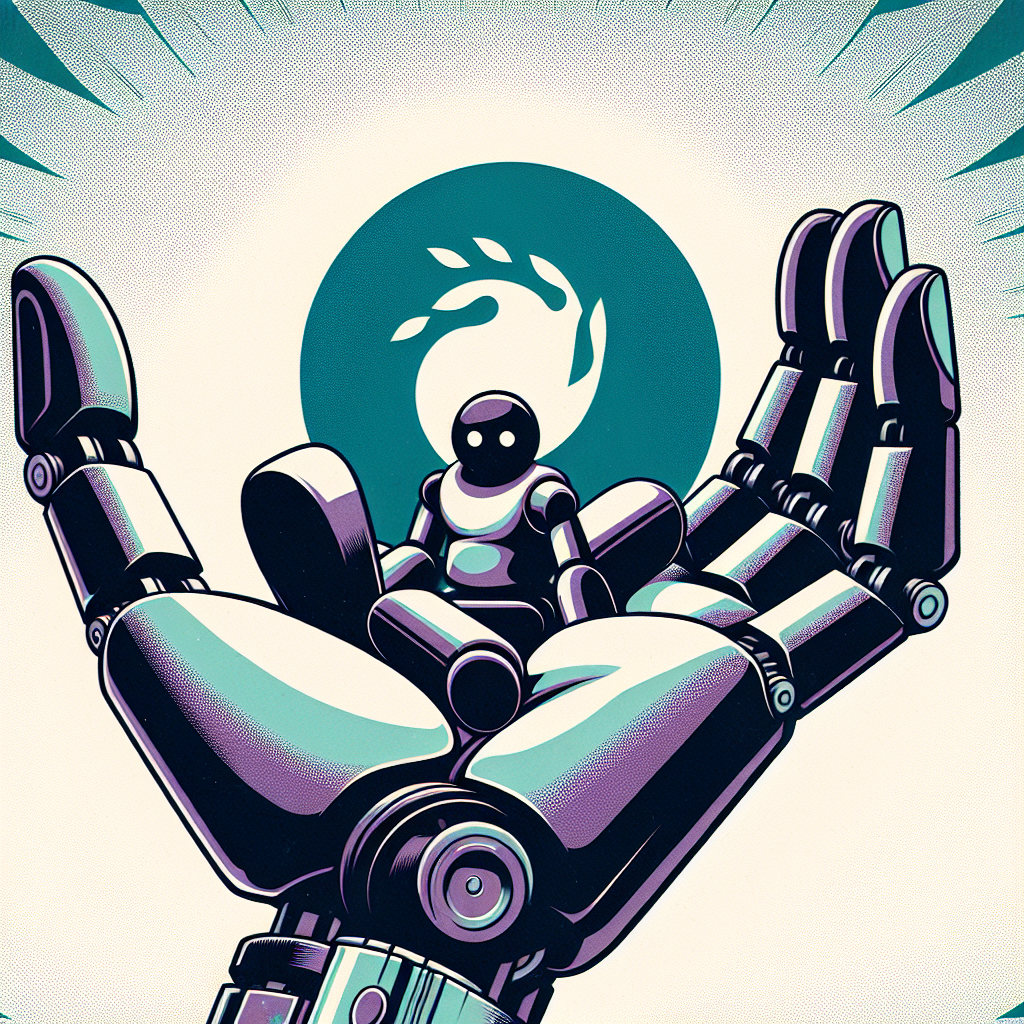Which AI Company To Invest In?
In the fast-paced digital world that we're reveling in, it feels like we’re on the …

Linux, the open-source operating system, has been a driving force in the world of technology for decades. As AI continues to evolve and transform various industries, it's natural to wonder how Linux will play in this exciting field. In this blog post, we'll explore the current state of AI in Linux, the factors influencing its future, potential use cases, challenges, and opportunities.

The Linux community has already made significant strides in incorporating AI capabilities into the operating system. Several AI-powered tools and technologies are currently available for Linux users:
1. TensorFlow: Developed by Google, TensorFlow is an open-source machine learning framework that supports Linux. It allows users to build and train neural networks for various AI applications.
2. PyTorch: Created by Facebook, PyTorch is another popular open-source machine-learning library compatible with Linux. It provides a flexible and intuitive interface for developing AI models.
3. OpenCV: OpenCV is an open-source computer vision library that enables real-time image and video processing. It is widely used in Linux-based systems for applications such as object detection, facial recognition, and autonomous vehicles.
4. ONNX: The Open Neural Network Exchange (ONNX) is an open format for representing machine learning models. It allows for interoperability between different AI frameworks, making deploying AI models on Linux systems easier.
These are just a few examples of the AI tools and technologies available in the Linux ecosystem. The open-source nature of Linux has fostered a collaborative environment where developers can contribute to and build upon existing AI projects.
Several key factors are shaping the future of AI in Linux:
1. Advancements in AI algorithms and techniques: As AI research progresses, new algorithms and techniques are being developed to enhance AI systems' capabilities. With its open-source nature, Linux is well-positioned to incorporate these advancements quickly.
2. Increasing computational power: AI applications often require significant computational resources. With the continuous improvement in hardware performance and the availability of powerful GPUs, Linux systems can handle more complex AI workloads.
3. Growing demand for AI solutions: Across industries, there is a growing demand for AI-powered solutions to improve efficiency, automate processes, and gain insights from data. As a stable and reliable operating system, Linux is a preferred choice for deploying AI applications in production environments.
4. Community-driven innovation: The Linux community is known for its collaborative and innovative spirit. Innovation is likely to accelerate as more developers and researchers contribute to AI projects in Linux.

The integration of AI in Linux opens up a wide range of potential applications:
1. System Optimisation: AI algorithms can analyse system logs, resource usage patterns, and performance metrics to optimise Linux systems in real-time. This can improve efficiency, reduce downtime, and improve resource utilisation.
2. Security and Anomaly Detection: AI-powered security tools can continuously monitor Linux systems for potential threats, anomalies, and suspicious activities. These tools can detect and respond to security incidents more effectively by leveraging machine learning algorithms.
3. Predictive Maintenance: AI models can analyse sensor data and system logs to predict potential hardware failures or performance issues in Linux-based systems. This enables proactive maintenance, reducing downtime and minimising the impact of failures.
4. Intelligent Automation: AI can automate repetitive tasks and complex workflows in Linux environments. By leveraging natural language processing (NLP) and machine learning, AI-powered automation tools can understand and execute human-like instructions, streamlining operations.
5. Data Analysis and Insights: Linux systems often handle large volumes of data. AI algorithms can process and analyse this data to uncover valuable insights, patterns, and trends. This can help organisations make data-driven decisions and gain a competitive edge.
While the future of AI in Linux looks promising, there are several challenges and limitations to consider:
1. Hardware Requirements: AI workloads often require specialised hardware, such as GPUs or TPUs, to achieve optimal performance. Not all Linux systems may have the necessary hardware resources, which can limit the adoption of AI applications.
2. Software Compatibility: AI frameworks and libraries may depend on specific Linux distributions or software package versions. Ensuring compatibility across different Linux environments can be challenging and require additional effort.
3. Skillset and Expertise: Developing and deploying AI applications on Linux systems requires a combination of Linux administration skills and AI expertise. Finding professionals with this unique skill set can be difficult, and organisations may need to invest in training and upskilling their workforce.
4. Data Privacy and Security: AI applications often rely on large datasets, including sensitive or personal information—data privacy, security, and regulation compliance are crucial when deploying AI solutions on Linux systems.
To address these challenges, the Linux community can collaborate on developing standardised APIs, improving hardware compatibility, and creating user-friendly tools for AI development and deployment. Investing in education and training programs can help bridge the skills gap and enable more professionals to work with AI on Linux systems.
The intersection of AI and Linux presents a world of possibilities and opportunities. With its open-source nature, robust ecosystem, and community-driven innovation, Linux is well-positioned to play a significant role in the future of AI. As AI technologies advance and mature, we expect to see more AI-powered tools and applications integrated into Linux systems.
However, realising AI's full potential in Linux will require addressing challenges related to hardware requirements, software compatibility, skillset gaps, and data privacy. By fostering collaboration, investing in education, and developing standardised solutions, the Linux community can overcome these hurdles and pave the way for the widespread adoption of AI in Linux environments.
The future of AI in Linux is bright. With the community's collective efforts, we can unlock new possibilities, drive innovation, and shape the trajectory of AI in the open-source world. Let's embrace the challenges, seize the opportunities, and build a future where AI and Linux work hand in hand to solve complex problems and create value for businesses and society as a whole.
Some other posts you may like

Which AI Company To Invest In?
In the fast-paced digital world that we're reveling in, it feels like we’re on the …
June 21, 2024
Read More
Creating an action in a CustomGPT to send an email using SendGrid
In an era where artificial intelligence is not just a buzzword but a tangible driver …
June 21, 2024
Read More